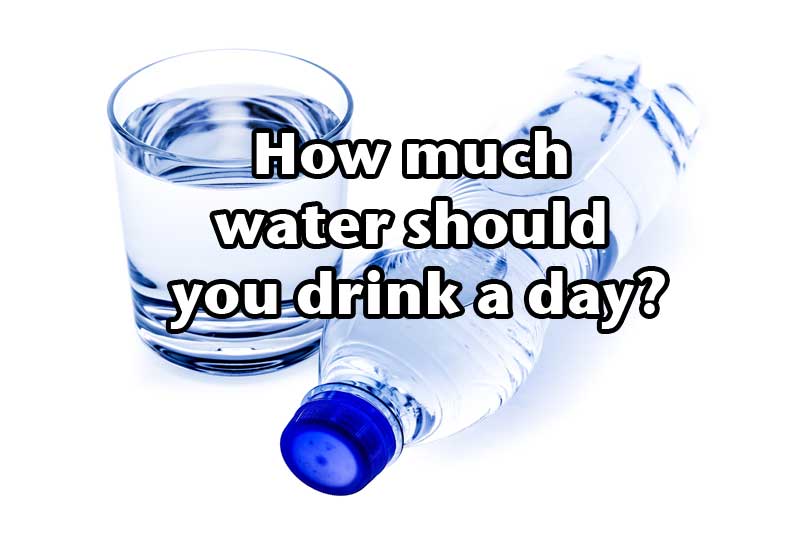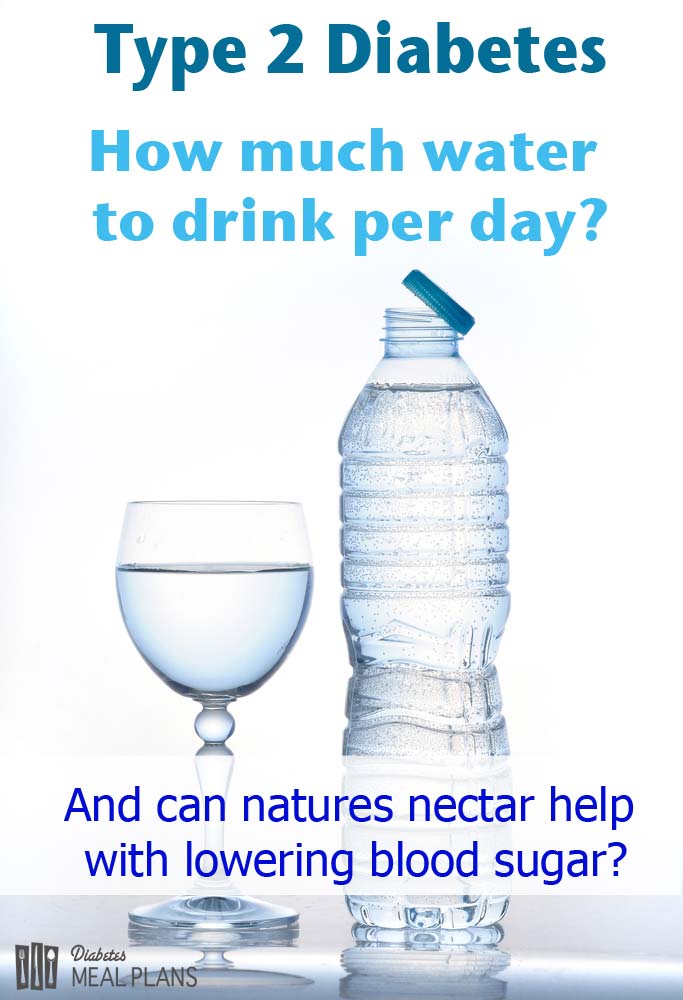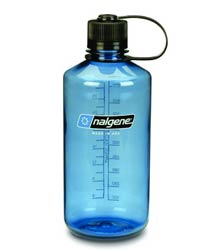
Water keeps our body functioning
Here are some of the important things water does for your body:
Carries nutrients and waste products
Maintains the structure of molecules in the body
Helps metabolic functions
Helps minerals, vitamins, amino acids, glucose and other molecules perform their job
Needed for body temp regulation
Maintains blood volume, which has an influence over blood pressure and blood glucose
As you can see, the body needs it for quite a few important things and yet most of us don't get enough water every day.
Water Helps Avoid The Side Effects Of Dehydration
By the time you feel like you have a dry mouth you are already dehydrated. You see, there's a time delay between your body’s water needs and your sensory awareness. Being thirsty is the first sign that your body is already lacking 1-2% body water.
That's why we need to be sipping it all throughout the day. Otherwise we're doing catch up or might suffer some of the consequences.
One surprising consequence of dehydration is more aches and pains. Water actually acts as a lubricant and cushion around joints and the spinal cord, so dehydration can contribute to increased inflammation and more aches and pains.
If you have been feeling tired and fatigued, disoriented, lack concentration, or feel grumpy. Or if you suffer from headaches, migraines, or depression, ask yourself if you’re drinking enough water.
You may not relate these things to dehydration but sometimes that's all it is. Look to the simple things for solutions first, because you might just be surprised how many things do have a simple solution.
Can Drinking Water Help Lower Blood Sugar?
The short answer: Yes.
Blood sugar is measured by milligrams per deciliter or millimoles per liter (depending where you live). Quite simply, 60% of the body is made up of water and a large percentage of that is in our blood, which is a liquid. When you drink water it helps to increase your blood volume and ‘dilute' the glucose in the bloodstream.

If you imagine the thickness of honey or another sugary syrup, you will recall that it is very sticky, thick, and sludgy. This is exactly what happens to your blood when it is high in glucose and is why you can feel so tired and fatigued.
When your blood is thick and sludgy it's not moving through your body as it should and there's not enough oxygen getting through to all your cells either.
Drinking plenty of water helps with all these issues. So if you find your blood sugar levels are high, try drinking more water because it really does help.
So how much water should you drink a day?
The general recommendation is at least 8 glasses per day. I find about 1.5-2 liters/ 50-70 oz per day works well.
Seems like a lot I know, and at first it’s a bit hard to get used to drinking that much. But when you do it consistently you do notice you feel better overall.
Best Water Bottles To Use
If you use a sports drink bottle it doesn't really matter how big it is. When it's empty, refill it!
But when it comes to choices, there are better quality bottles.

As you can see, the body needs it for quite a few important things and yet most of us don't get enough water every day.
Water Helps Avoid The Side Effects Of Dehydration
By the time you feel like you have a dry mouth you are already dehydrated. You see, there's a time delay between your body’s water needs and your sensory awareness. Being thirsty is the first sign that your body is already lacking 1-2% body water.
That's why we need to be sipping it all throughout the day. Otherwise we're doing catch up or might suffer some of the consequences.
One surprising consequence of dehydration is more aches and pains. Water actually acts as a lubricant and cushion around joints and the spinal cord, so dehydration can contribute to increased inflammation and more aches and pains.
If you have been feeling tired and fatigued, disoriented, lack concentration, or feel grumpy. Or if you suffer from headaches, migraines, or depression, ask yourself if you’re drinking enough water.
You may not relate these things to dehydration but sometimes that's all it is. Look to the simple things for solutions first, because you might just be surprised how many things do have a simple solution.
Can Drinking Water Help Lower Blood Sugar?
The short answer: Yes.
Blood sugar is measured by milligrams per deciliter or millimoles per liter (depending where you live). Quite simply, 60% of the body is made up of water and a large percentage of that is in our blood, which is a liquid. When you drink water it helps to increase your blood volume and ‘dilute' the glucose in the bloodstream.

If you imagine the thickness of honey or another sugary syrup, you will recall that it is very sticky, thick, and sludgy. This is exactly what happens to your blood when it is high in glucose and is why you can feel so tired and fatigued.
When your blood is thick and sludgy it's not moving through your body as it should and there's not enough oxygen getting through to all your cells either.
Drinking plenty of water helps with all these issues. So if you find your blood sugar levels are high, try drinking more water because it really does help.
So how much water should you drink a day?
The general recommendation is at least 8 glasses per day. I find about 1.5-2 liters/ 50-70 oz per day works well.
Seems like a lot I know, and at first it’s a bit hard to get used to drinking that much. But when you do it consistently you do notice you feel better overall.
Best Water Bottles To Use
If you use a sports drink bottle it doesn't really matter how big it is. When it's empty, refill it!
But when it comes to choices, there are better quality bottles.

BPA free bottles are about the same price as regular sports water bottles and they are far better for our health. For example, Nalgene has a 1 quart/ 950 ml BPA free bottle for $10.42. Compared to the Nike Hang Tagsports water bottle at $8 for a 20 oz/ 600 ml bottle and it's not BPA free.
“Bisphenol A (BPA) is a chemical used in the lining of some food and beverage packaging”, it's commonly found in many plastics. Although food standards claim that BPA is safe, studies have shown that BPA can in fact have negative consequences for our health.
It has been shown that small amounts of BPA can migrate from food containers and into foods and water, which is why being choosy is worth it – especially since our water sits in the bottle all day and sometimes in hot and cold environments.
So given the cost, I'd go for a BPA free water bottle every time – you can pick them up from $2-10.
Can I Flavor Water?
I'd always recommend to just drink water but I know many people can't stand that, so if you want to flavor it with something then go for it.
Your best options for simple flavorings will be things like lemon or lime juice, or some fruit flavored herbal tea.

“Bisphenol A (BPA) is a chemical used in the lining of some food and beverage packaging”, it's commonly found in many plastics. Although food standards claim that BPA is safe, studies have shown that BPA can in fact have negative consequences for our health.
It has been shown that small amounts of BPA can migrate from food containers and into foods and water, which is why being choosy is worth it – especially since our water sits in the bottle all day and sometimes in hot and cold environments.
So given the cost, I'd go for a BPA free water bottle every time – you can pick them up from $2-10.
Can I Flavor Water?
I'd always recommend to just drink water but I know many people can't stand that, so if you want to flavor it with something then go for it.
Your best options for simple flavorings will be things like lemon or lime juice, or some fruit flavored herbal tea.

You could try something like Stur, which is a stevia sweetened fruit flavor specifically designed to add to water. There are quite a lot of water flavorings on the market. You really just want to look for the most natural options or you'll defeat the purpose of drinking water in the first place.
Definitely avoid cordials and sugar filled fruit juices because that's not going to help you with blood sugar control, which is the whole purpose of drinking more water – well an important purpose anyway.
Practical Tips To Get Enough Water Everyday
Have a glass of water first thing in the morning when you wake up.
Definitely avoid cordials and sugar filled fruit juices because that's not going to help you with blood sugar control, which is the whole purpose of drinking more water – well an important purpose anyway.
Practical Tips To Get Enough Water Everyday
Have a glass of water first thing in the morning when you wake up.
Every time you pass a water fountain, take a sip.
Fill up a bottle and carry it with your everywhere you go so you can constantly sip on it throughout the day.
Have a small glass before meals.
Drink a bit more water before and after exercise
Just drink water
So have you been drinking enough water everyday? Or now that you know it can help with blood sugar control, will you start drinking more?
Please share this info to help others – thanks!
So have you been drinking enough water everyday? Or now that you know it can help with blood sugar control, will you start drinking more?
Please share this info to help others – thanks!
No comments:
Post a Comment